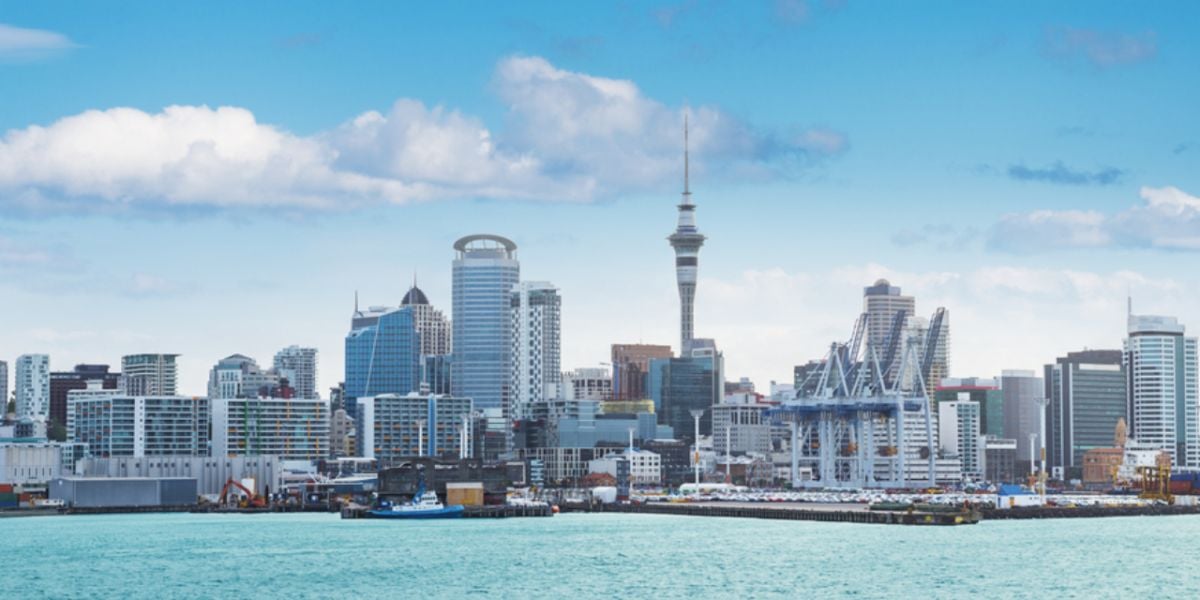
New Zealand has a large economy that requires an extensive workforce. This, combined with a relatively small population, means New Zealand can't rely on its own people alone to get the work done, so New Zealand is dependent on expatriate workers to help sustain some of its industries. Added to this is the propensity of Kiwis to become expatriates themselves – New Zealanders are second only to the Irish in terms of the expatriate diaspora in the developed world. Currently, approximately 1 million New Zealanders, around 14%, live overseas.
Following the easing of COVID-19 restrictions, economic growth has picked up in New Zealand, but labor shortages, exacerbated by border closures, remain a problem. To address labor shortages, the New Zealand government has increased caps on seasonal and working holiday visas.
The New Zealand economy: a snapshot
GDP
The country's GDP in 2022 was US$256.24 billion.
Unemployment
The national unemployment rate reached a record low in 2021, at 3.2%, and was sitting at 3.3% in 2022.
Currency
The national currency is the New Zealand Dollar and is the 14th most traded currency in the world.
Exports
New Zealand's most exported goods are:
- Dairy products
- Meat
- Logs and wood products
- Fruit
- Machinery and equipment
- Wine
- Fish and seafood
Skill shortages in New Zealand
In New Zealand, the sectors that have long-term work shortages and therefore need skilled migrants are:
- Construction
- Engineering
- Finance / Business
- ICT, Electronics & Telecommunications
- Health, Social Services,
- Recreation, Hospitality, and Tourism.
Immigration New Zealand has developed a Green List, which allows expatriates to determine if their specialty falls under a “Tier 1 Straight to Residence” or “Tier 2 Work to Residence” visa category. Using the Green List, you can determine the required qualifications, registration or experience you need for your particular industry or role.
For those wishing to find seasonal or casual work while traveling in New Zealand, the tourism, hospitality, and horticultural sectors are often short of workers, especially during the summer months when tourism sees increased demand and orchards and nurseries require more workers. Note that you will need a Working Holiday Visa to find seasonal work in New Zealand.
Wages in New Zealand
As of mid-2021, the median income in New Zealand was just under NZ$27 per hour, which adds up to NZD $56,160 per month before tax, based on a 40-hour week. In New Zealand, as with anywhere, your salary will depend on many factors, including your qualifications and experience, your specialty, and where you are based in the country. Service and hospitality jobs are usually lower-paid, whereas jobs in IT and engineering are paid the highest.
In 2022, wages increased sharply in line with consumer price inflation, which reached a 30-year high in the second quarter. The legal national minimum wage is now NZ$21.20 per hour for adults, which equates to NZ$169.60 for an 8-hour workday or NZ$848.00 for a standard 40-hour workweek. For those training or starting out, the wage is a bit lower, at NZ$16.96 per hour.
Working conditions in New Zealand
Anyone working in New Zealand, whether part-time, full-time, casual or on a fixed-term contract, is entitled to four weeks of paid holidays or annual leave per year. There are also 11 public holidays every calendar year, and if you are asked to work one of them, you will legally earn one and a half time pay, with most workplaces offering a day in lieu as well. After six months, you are also entitled to sick and bereavement leave.
As a New Zealand resident, you will be able to sign up for the KiwiSaver scheme, which is a savings/retirement fund that is automatically deducted from your wages. Your employer also contributes to your KiwiSaver, matching the employee's contribution rate up to a certain number.
In New Zealand, you are entitled to paid parental leave if you have worked for your employer for over six months; this can break down to a maximum of NZ$621.76 a week.
Many companies offer collective employment agreements that have been negotiated by a union. Even if you are not a part of the union, you can use this agreement as the basis for negotiating your own employment conditions. In New Zealand, you have the right to join a union, and your employer is not allowed any input into this decision.
Good to know:
You can benefit from your KiwiSaver earlier than retirement. If you want to buy your first house, permanently leave the country, get hit by financial hardship, or are struck by severe illness, you may be granted access to your KiwiSaver account.
We do our best to provide accurate and up to date information. However, if you have noticed any inaccuracies in this article, please let us know in the comments section below.








